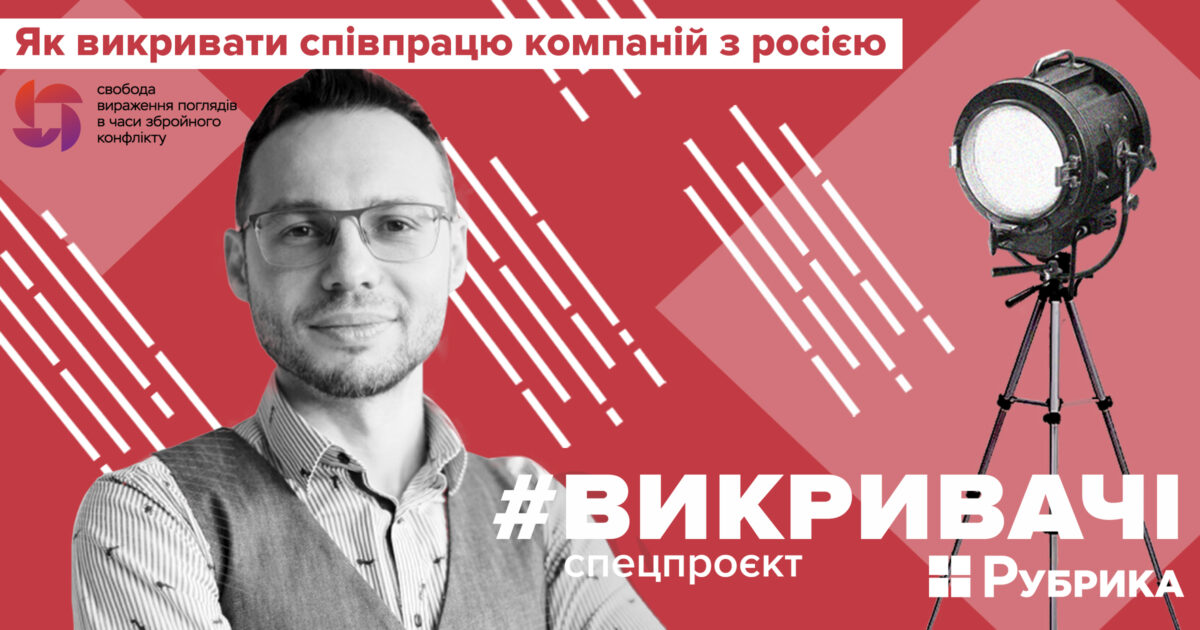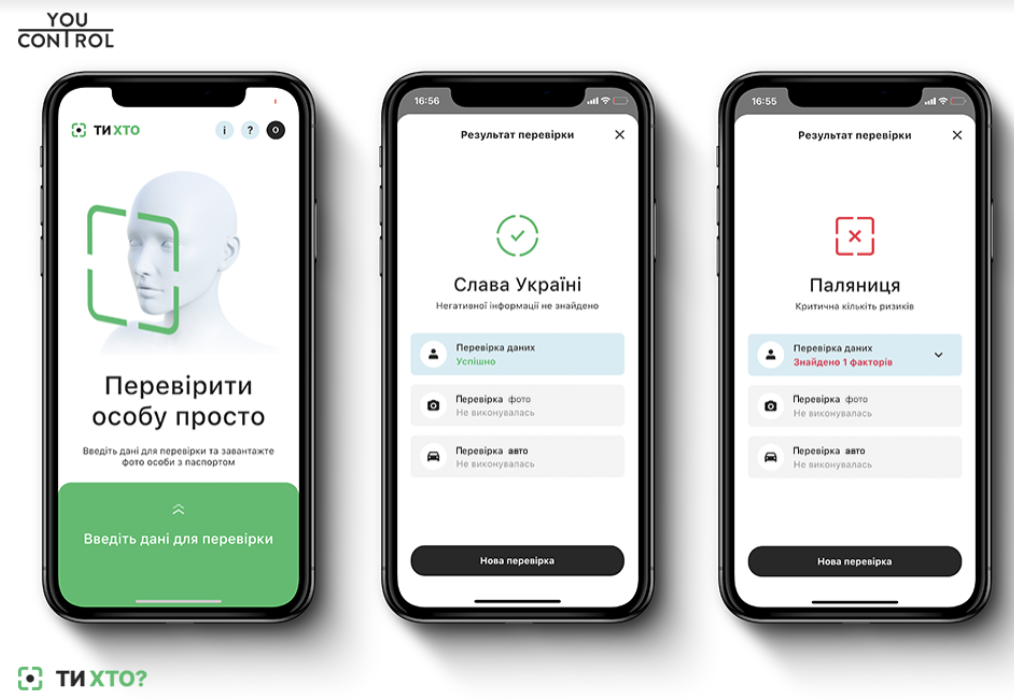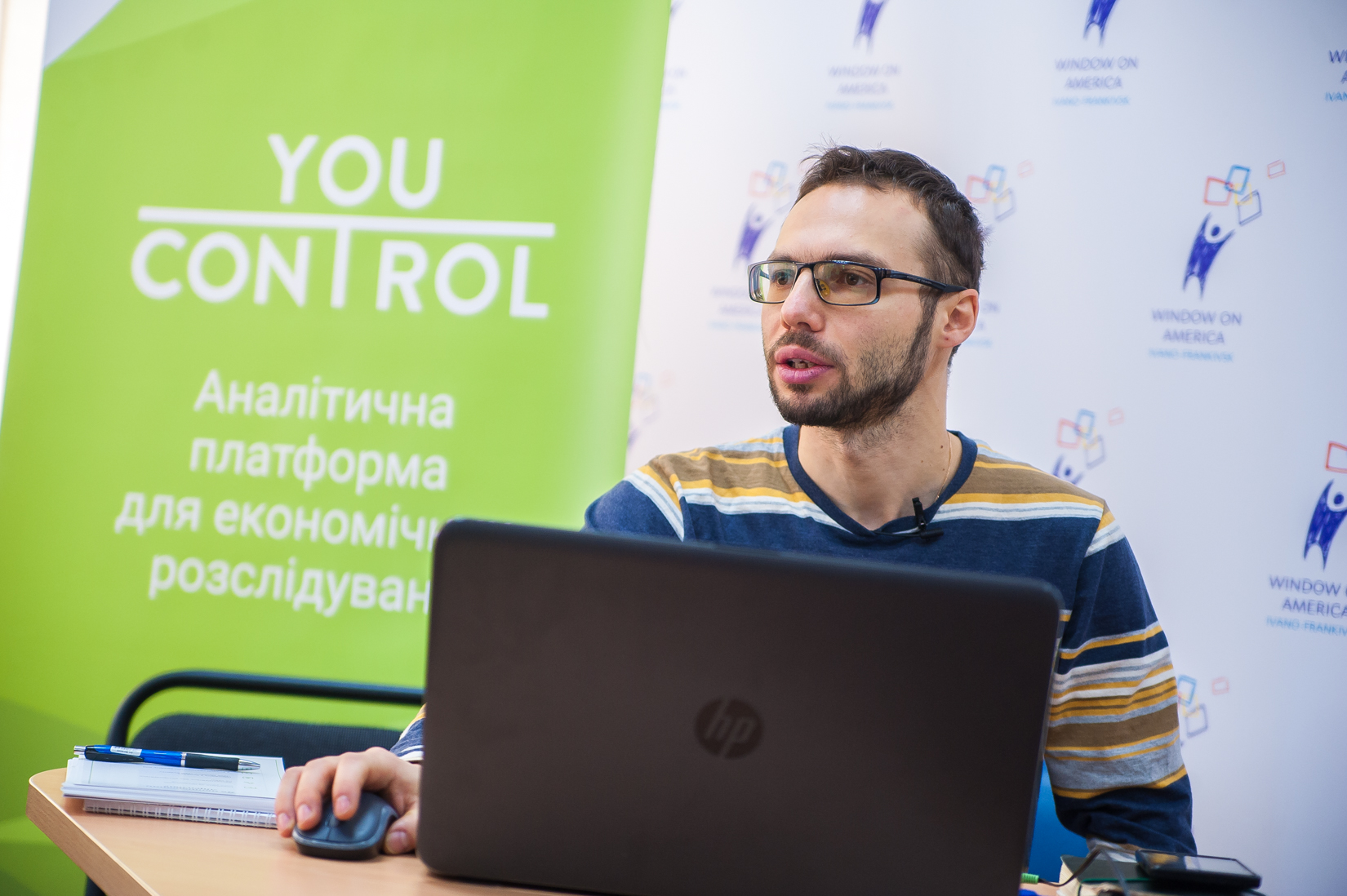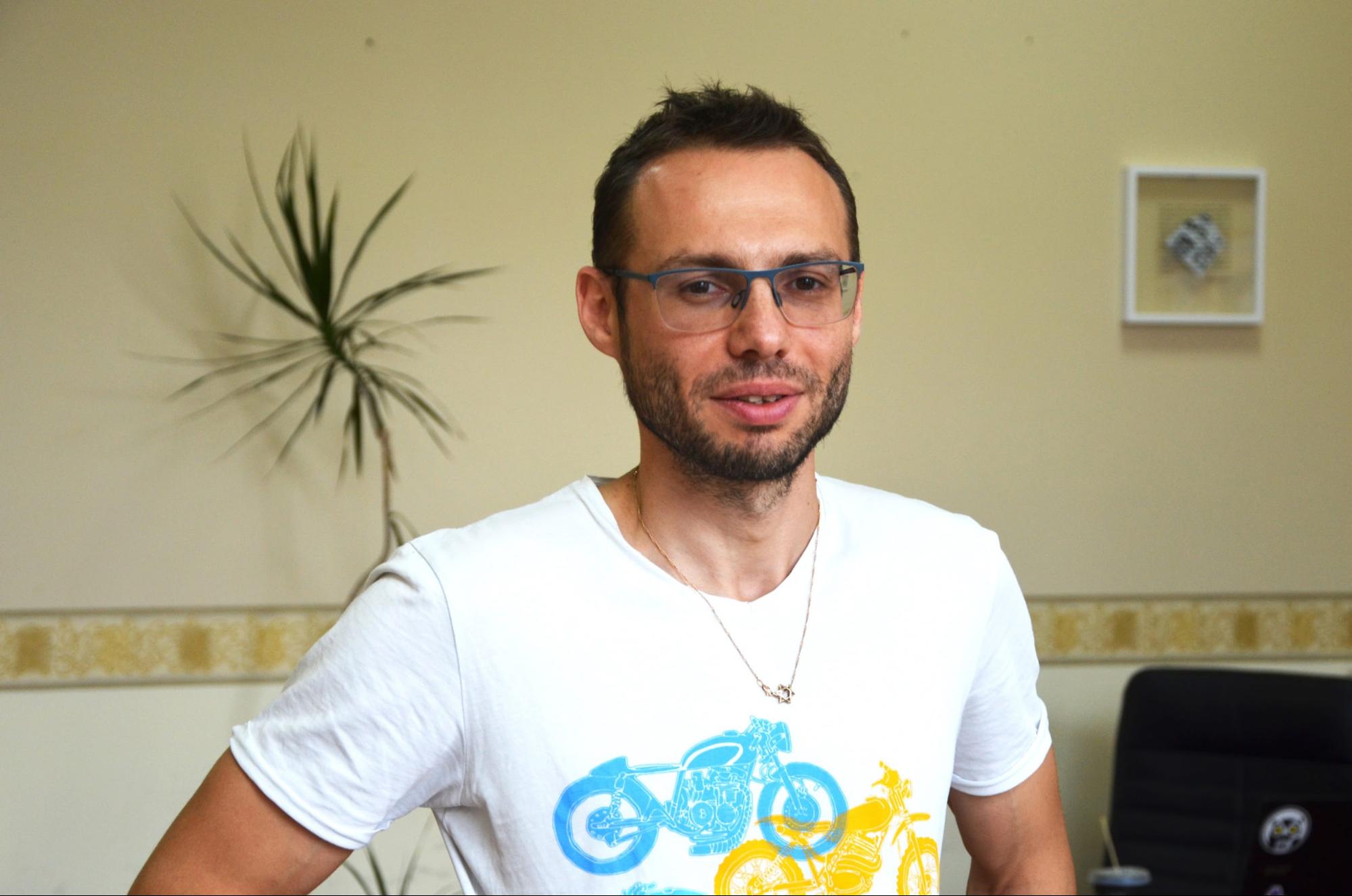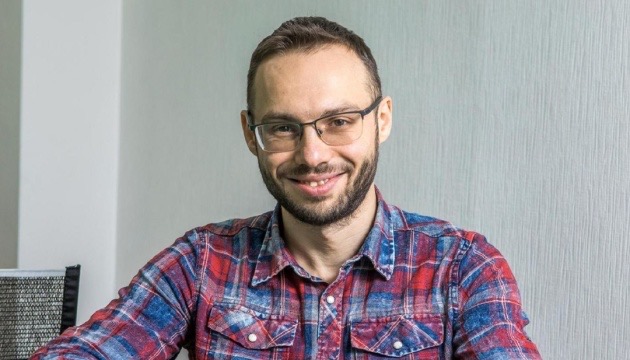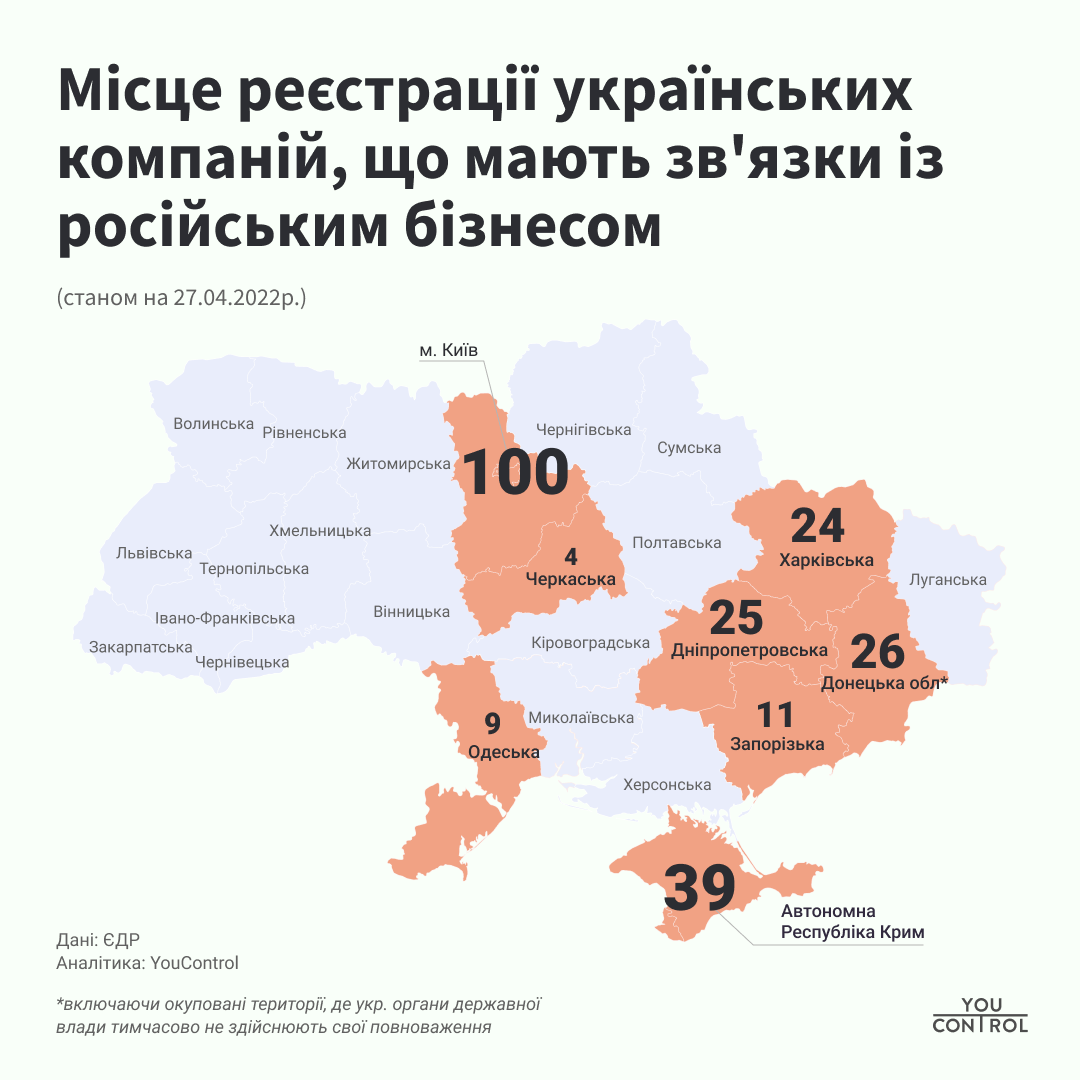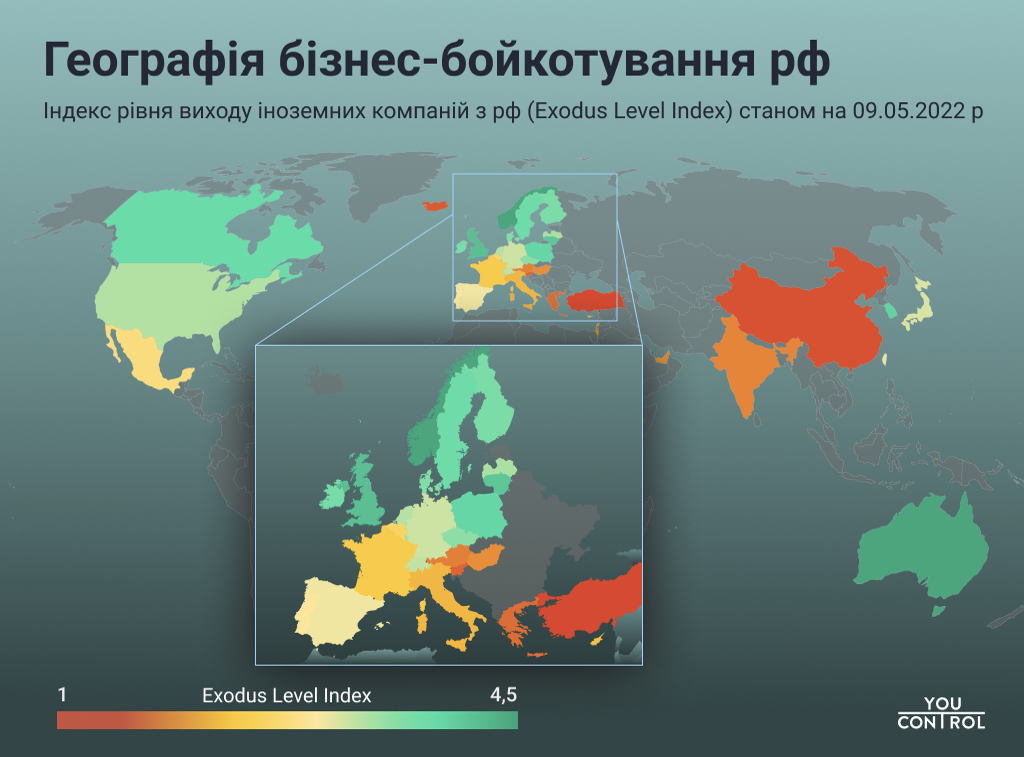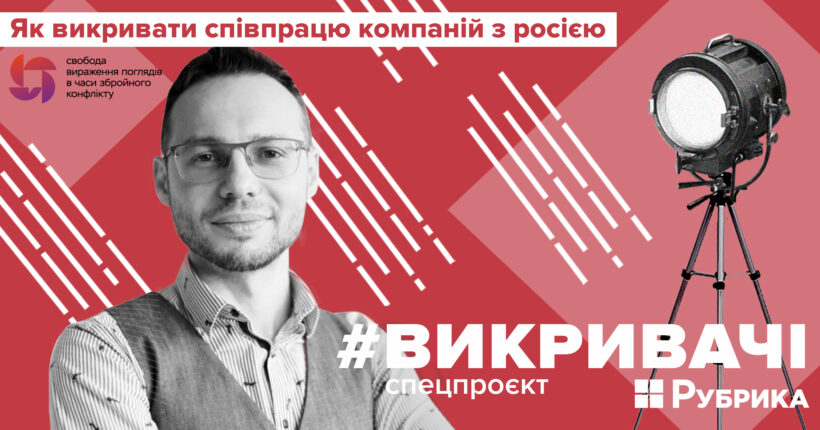
YouControl is a Ukrainian team that creates services for the analysis of enterprises and also helps businesses avoid financial risks, and journalists and public activists – investigate socially significant cases. The system creates a complete dossier on each Ukrainian company based on open data, monitors changes in state registers, and visualizes connections between affiliated persons. The unique technology allows you to get up-to-date information about a company or business from more than 180 data sources in a minute. The monitoring function reports changes daily based on data from official sources.
At the beginning of the full-scale war, the YouControl team created several informational and analytical products to bring Ukraine's victory closer. The first is a volunteer platform for the needs of the Armed Forces of Ukraine and the Territorial Defense "People for Ukraine." The second is RuAssets, an international instrument for searching and identifying russian assets around the world. And the third is an application for verifying individuals in wartime at TyHto checkpoints.
How to investigate the cooperation of companies with the russian federation, why it is generally important to conduct such control, what effective levers of influence exist on these companies, how to distinguish the real exit of a company from the russian market from a disguised one, Rubryka tells in an interview with the founder and CEO of YouControl Serhiy Milman.
How does YouControl work?
— How did the war change the work of the YouControl team? How did you adjust the vector of your activity?
— Given that the war affects everyone, we tried to be useful to the country, using the competencies we have already acquired — working with open data, analysis, and verification. We did everything we could to speed up Ukraine's victory. If, until February 24, we dealt with tools for checking counterparties in Ukraine, now we reoriented a little and tried to solve several important issues.
One of them was to find an international russian footprint. We set ourselves the task of creating a system that allows us to find a toxic russian trace that the civilized world no longer wants to deal with by instantly checking a legal entity or individual. The platform is called RuAssets. NAPC, SSU, ARMA, and other state bodies are already working with it. They use it to find information about those russian citizens whose names will be added to sanctions lists and submitted to our international allies. We consider this project to be promising because, firstly, such activity can lead to the blocking or freezing of the found russian assets. Secondly, compliance officers of international organizations, companies, and banks, checking counterparties and discovering this russian trace, may decide not to cooperate with them because this cooperation will definitely be associated with financial and reputational risks. No one knows who will be added to the sanctions lists next, and the cooperation with such counterparties may lead to closed markets, for example, the USA and the EU.
— Can information and open data affect the economic pressure currently directed at russia? How can this happen?
— It 100% can. The russian Federation usually lies and distorts reality. Therefore, open data is an opportunity for society to see how things really are. Many russian companies try to avoid sanctions by creating controlled, intermediary companies. They try to disguise themselves in this way. Open data is one of the real ways to find out whether this organization or person is connected with russian sanctioned persons or, in general, with russian business, which, for example, cooperates with the defense industry of the russian federation. Now, the russians are trying to close the existing open registries to make it impossible to analyze this information. We were very fortunate to download some data sets we needed relating to government procurement, including russian registers, at the beginning of the active phase of the war. So we have the data that allows us to do this analysis.
— What russian data do you mean?
— We have the biggest database of public figures, the so-called PEPs of the russian federation, Kazakhstan, and Belarus. It was gathered from various sources: websites of political parties, declarations, the rupep.org website, and analytical work. Now our analysts are manually trying to form financial and industrial groups of the russian federation so that this information can be used to analyze visible connections with russia and find hidden ones.
How to expose the company's ties to russia?
— Do you cooperate with investigative journalists? How is this information moving forward?
— Yes, we provide access to the RuAssets and YouControl free of charge, so the journalists can further use this data for their investigations. After all, it significantly reduces the time a person spends collecting information about the investigation subject. Also, journalists are now finding a huge number of russian assets that will be frozen and blocked in the future. Currently, we have set ourselves the goal of collecting all these investigations (Ukrainian and international) and adding them to the system. Accordingly, in countries where such assets are found, governments will be able to block or freeze them for further use in reparations.
— Who can use your tools?
— Law enforcement agencies and analysts engaged in the analysis of counterparties use our system to determine the russian footprint or obtain broader information about counterparties to nationalize in Ukraine or submit sanction lists to international partners. For many years we have been cooperating with Ukrainian and foreign journalists. We provide them access to YouControl and RuAssets to conduct investigations more efficiently and quickly.
— Are these tools in demand?
— They are very popular. For example, YouControl withstood all the hacker attacks at the beginning of a full-scale war, while almost all state registries either "went down" or were hacked or disabled because they could not keep everything under control. And a situation arose when the data was basically nowhere to be found. So today, YouControl with the archived data that we provide, apart from the fact that certain data is still updated, is very useful. It is used by both entrepreneurs, who continue to work actively, and by law enforcement officers, who, at the beginning of the war, were generally in a complicated situation regarding the data analysis or verification tools. As for the international market, this is a new area for us. We are actively searching for companies and organizations interested in the system, including law enforcement agencies. There are countries, mostly among allied states, where law enforcement agencies, journalists, and banks are interested in such tools because conscious people understand the consequences that can occur if they do not see the hidden russian trail in time.
— In your opinion, what are the consequences of cooperation with the russians or sanctioned persons?
— Reputational risks are already occurring. Everyone remembers the case with Coca-Cola when they were leaving the russian market for several weeks. It seems to me when they finally withdrew from it, they realized they could have done it much earlier. In this case, they wouldn't have received such a volume of negativity worldwide. The same applies to other companies either slowly withdrawing from the russian market or continuing to operate there. They are at risk not only because of the potential sanctions but also because of the reputational aspect. People see that the company works with russians, and they do not want to buy these products or do business with such a company. What is happening in Ukraine is more or less understandable for civilized countries, so cooperation with russia is already considered negative. It tarnishes the organization that continues to do so. And, of course, no one canceled the risks: if you work with the US or EU markets and a russian trace is detected, the company might be added to the sanctions lists.
— How many information and analytical tools did you create during the war? What is their functionality?
— In addition to RuAssets, we also worked on a system that would allow people to be checked right away when passing checkpoints. The team members and I drew attention to the fact that this process is complicated. There is traffic on the roads due to a long check. In addition, it is unknown where the data in notebooks, photographed on phones, etc. ends up. Therefore, we decided to create a service that would allow people to be instantly checked for the presence of russian traces or other clear markers that should attract the attention of law enforcement officers for a more thorough check. The application is called "TyHto". It is used by the SSU, border guards, and military personnel on duty at checkpoints or patrolling. We already have about 200,000 active users of this application.
By the way, this is the first application developed by YouControl. It was created jointly with the IT company Artellence.
The "TyHto" application checks the information:
- does the photo in the passport correspond to reality
- whether the passport is invalid/lost/stolen
- whether the person is wanted
- whether the person has been sanctioned by the National Security Council
- is the person on the terrorist register/ DRG/ in the Myrotvorets base
- whether the car in which the person is traveling is wanted/stolen
- the propensity for separatism and connection with the russian federation/Republic of Belarus
Also, from the beginning of the war, we began searching among Ukrainian businesses for organizations with a connection to russian business or, in general, to the russian federation and Belarus. We found more than 21,000 companies that have such a connection. In the YouControl system, this is reflected in the express analysis and can be seen instantly.
This information will be useful to law enforcement officers when they deal with the nationalization procedure, freezing, and blocking of these assets. In general, anyone can check this information. It is very useful for Ukrainian entrepreneurs because this way, they can avoid cooperation with organizations having signs of a russian footprint.
In addition, we have developed a volunteer platform to help the Armed Forces. It allows you to connect people who indicate needs and volunteers who can help and close this need. We implemented this project from the Ministry of Defense. Over time it was supported by the International Renaissance Foundation and the Kolo СF.
— By what indicators does YouControl determine the presence of a russian footprint in Ukrainian companies?
— Our goal is to make it so that a person, even without additional education in the field of compliance control or verification of counterparties, can find out whether there is a trace or not. That is, to make information about companies as accessible as possible to a huge number of people. Due to the wide coverage of the system use, we can achieve a refusal to cooperate with the russians because many entrepreneurs do not even know that they are cooperating with companies affiliated with the russians or organizations financing this war. It happens because, quite often, russian companies create chains of intermediaries whose purpose is to hide the real owner. There are many such cases.
For example, "Economichna Pravda" published information that russian companies bypass sanctions and buy equipment for ammunition production from the EU. Of course, this does not always happen directly. It happens through intermediary companies, and we are trying to make it so that a person enters the name of an organization in the search bar and sees whether there are data in various international registers that can be interpreted as russian traces. If there is some, the system highlights it.
Another thing is that most often, an ordinary person is not interested in this as much as compliance officers working in banks, journalists, and law enforcement officers are interested. That is, those who constantly work with this information: either authorized to find russian assets or those who check their own organizations to protect them from risks.
— What does the user need to do to use the YouControl system to check whether this or that Ukrainian company has a connection with the russian federation?
— It is necessary to enter the name of the company or its code in the search bar. The company file opens, and the information about the connections with the russian federation or Belarus presence is immediately highlighted on top in Express Analysis. The same thing happens in YouControl. When you open the module for verification of natural persons, by entering the name of a person, in the same way, you can see possible connections with the russian federation. It is extremely simple. As for the international platform for the russian assets search, RuAssets, it is not a lot more difficult either. There, you also enter the name of a company, for example, from Cyprus, Estonia, Latvia, Poland, or the USA, and see if it has connections with russia, Belarus, or any military or propagandists. It does not require any serious competence. It is available to anyone.
Who works with russia?
— How many Ukrainian companies have connections with russia? What are these connections?
— More than 21,000 Ukrainian companies have connections with russia and Belarus. More than 17,000 companies have links with the russian federation and almost 3,600 with Belarus. YouControl has included 5 new factors in the counterparty verification module, which are precisely aimed at the immediate detection of these toxic connections. YouControl express analysis allows you to identify links with sanctioned legal entities and individuals and the affiliation of Ukrainian companies with the russian federation and Belarus.
The new functions take into account the following current risks:
1) The final counterparty beneficial owner or participant is registered on the territory of the russian federation or is its citizen.
2) The final counterparty beneficial owner or participant is registered on the territory of the Republic of Belarus or is its citizen.
3) The counterparty name contains a reference to the aggressor country.
4) The company is a member of a joint holding company with a counterparty and operates under the jurisdiction of the russian federation.
5) The Ukrainian company is a member of a legal entity registered under the legislation of the russian federation.
— How many Ukrainian companies have a stake in russian business? Are there politicians or civil servants among the founders of these companies?
— When specialists of the YouControl R&D center analyzed the data of the public records of legal entities of the russian federation for the presence of Ukrainian companies in the ownership structure of russian organizations, they found the following figures:
- 273 Ukrainian companies and organizations have connections with 251 russian enterprises.
- In addition, 40 Ukrainian companies from the analyzed list are part of well-known financial and industrial groups or groups of companies.
- 100 companies from the analyzed list are registered in Kyiv, 39 — in the occupied Crimea, and more than 20 companies each — in the Donetsk, Dnipropetrovsk, and Kharkiv regions. From 1 to 11 such organizations are registered in the other regions of Ukraine. It is interesting that in Zakarpattia and Ternopil regions, no companies related to the russian federation were found.
Voluntary sanctions
"Since the beginning of the war, almost 1,000 companies have announced their withdrawal from the russian market or the curtailment of operations"
— With the beginning of a full-scale war, hundreds of foreign companies announced they were leaving russia. You analyzed these statements. Are they backed up with action, or is it more PR? Are foreign companies really leaving russia?
— As far as I know, the voluntary withdrawal of companies from russia is monitored by the Yale School of Management. On May 9, they published information that, as of that time, almost 1,000 companies had announced their closure or withdrawal from the market. Of course, there are cases when companies try to cheat. But in my opinion, it is a bad story. Because if you stay in the Russian market, you are most likely putting a big cross in the way of working in the US and EU markets. Searching for opportunities to work in the russian market is about short-sightedness. The global trend indicates a huge conflict between the democratic and authoritarian world, and russia is already the world record holder for sanctions. This sanction array will only increase, and the number of persons subject to sanctions will grow accordingly. And we are not talking about the inevitability of russia being recognized as a terrorist state. Any cooperation with any entities related to russia will be considered highly questionable in the civilized world and will be subject to sanctions. Trying now to preserve these ties, or, on the contrary, to improve them, or help the russians circumvent sanctions, is the way to nowhere.
— What is the origin of the companies that really left the russian market, and which countries did ignore this global business boycott?
— The level of the corporate boycott of the russian market depends significantly on the geography of the multinational companies' head offices.
The top 5 leading countries in terms of business boycotts include:
- Australia;
- Norway;
- Lithuania;
- United Kingdom;
- South Korea.
Also, a significant share of foreign companies that left the russian market or stopped operating is from Canada, Sweden, Ireland, Finland, and Poland.
The business of Northern European countries more massively supported the idea of voluntary sanctions, in contrast to representatives of Southern Europe, who are more loyal to the russian federation. In particular, among Spanish, Portuguese, French, and Italian brands, the reaction to calls for the withdrawal from the russian federation was ambiguous and multidirectional.
Among European countries, Iceland, Slovenia, Greece, Austria, and Hungary have the lowest exit rates and a high share of companies that continued business in russia.
TOP-5 countries with the lowest level of business exit from the russian federation include Turkey, China, Iceland, Slovenia, and Greece.
According to the assessment of the YouControl R&D center, the largest share of companies loyal to the russian federation works in health care, metallurgical raw materials production, construction, telecommunications, and the textile industry.
— How can companies be punished for cooperating with russia?
— The US administration warns foreign banks against helping russia circumvent sanctions, The New York Times writes. If companies support russian businesses or oligarchs financially constrained by the war in Ukraine, they risk losing access to US and European markets.
"If you provide financial support to a sanctioned individual or entity, we may extend our sanctions pressure to you and use our prosecution tools," US Deputy Treasury Secretary Adewale Adeyemo said. "I want to make it clear to these institutions in the country and to other countries that may not have taken sanctions measures: the United States, our allies, and partners are determined to act if you violate our sanctions."
Adeyemo emphasized that American banks carefully monitor that they do not violate sanctions, but russian individuals and legal entities are looking for workarounds to create trusts and use proxy servers.
Therefore, direct or indirect cooperation with counterparties registered on the territory of the russian federation can be considered as support for military aggression against Ukraine and cause the following consequences:
- EU member states, the US, and other states may introduce sanctions policies against such legal entities;
- law enforcement agencies of Ukraine may start an investigation of such cooperation;
- seizure of property and blocking of bank accounts;
- negative reputational consequences due to public condemnation of company policies.
— Is it possible to avoid paying for connections with sanctioned counterparties?
— Relations with risky counterparties will have negative financial, reputational, and operational results: fines, seizure of property and accounts, blocking of banking transactions, and loss of reputation due to public criticism. Even in those cases when connections are distant and mediated through joint contractors, places of registration. Contact with a counterparty at levels 3-4 still "counts" for cooperation and violation of sanctions. Any business contacts, especially new ones, require extreme attention. You can pay for years for the wrong decision. It is really about risk management and the need to be as careful as possible when working in countries with socially unacceptable policies, especially when these policies can lead to the financing of terrorism.
Just check your business partners. Each company and entrepreneur decide for themselves which side they are on and whether they are willing to sacrifice potential profits for the sake of humanity and business ethics.
— Why is it significant to monitor relations with russian companies?
— During all the years of the war, in some periods, we saw a revival of the cooperation trend. Now, it seems to me that this is the last straw because now both Ukrainian legislation and the steps taken by the authorities regarding the sanctioned companies or the nationalization of russian assets indicate that cooperation with russians and Belarusians has no prospects. If we are talking about Ukraine, it is very important to check counterparties to protect yourself from possible financial or reputational losses due to sanctions. After all, sometimes, even a reputational scandal is enough for a company to have serious problems.



